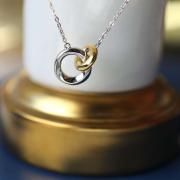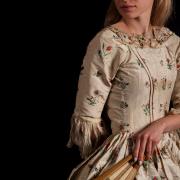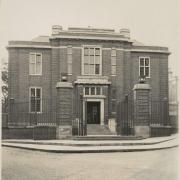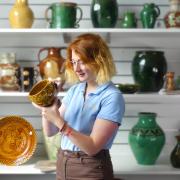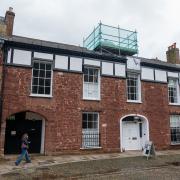A project by Devon historian Dr Todd Gray to explore Exeter's connections with the British Empire has led to a new two-part book, which looks at empire through the lives of 250 people over 400 years - and, as he explains, some eye-opening discoveries were unearthed along the way.
Why research this topic, one of the most divisive subjects in modern Britain?
I find it curious that it is so challenging despite few people having a real understanding of the actual history. At one point England owned up to a quarter of the world’s land mass and ruled over hundreds of millions of foreign people – and this took place over four centuries. This was one of the great transformative forces in British history and yet little is said about it and even less known about how Exeter was connected.
Was Exeter particularly involved?
Empire permeated Exeter as it did the rest of the country and its connections lay through missionaries, merchants, colonists, servicemen, travellers, administrators, explorers… In the 1800s and early 1900s Exeter was no longer a leading industrial city and our place in the world of commerce, including empire, was not like that of Leeds, Liverpool or any other great city. Instead, we interacted as a regional capital and the city council, cathedral and university played particular parts. The book tells the story of Exeter and Empire through the voices of 250 people over the last 400 years.

How did empire embed itself?
We can see it in everyday ways - the introduction of words from colonial languages (pyjamas, bungalow or ketchup) and new food such as curry, tea and coffee. Some homes were named after colonial places in which Exonians worked or lived. But empire contributed to how the British saw themselves, as rulers of an enormous portion of the world.
Are there some individuals who stick out?
The Dowager Queen of the Cocos Islands was an Exeter woman, Maori singers performed in the guildhall in 1903 and Harry Hems of Longbrook Street carved gigantic heraldic stone animals for Indian public buildings. One of the hallmarks of the material is that it is continually surprising.
Does Exeter have many buildings which we owe to empire?
The Roman Empire left behind the city walls and the Norman Empire gave us the cathedral but Exeter’s most potent relic of the British Empire is the Royal Albert Memorial Museum. Many of its Victorian collections were caught up with imperialism but then again, so was everyday life.
Was the empire all bad?
This is the question most people ask but it may be more useful to start with trying to understand just what the history is. There were some deplorable violent events as well as great acts of good will performed by private individuals. Would any people choose being ruled by foreigners instead of self-government? We can see this in our own lives with what is now happening in Ukraine. The complications regarding the British Empire lie with the economic, cultural, racial, religious and governmental differences in the vast array of places and people encountered by the British and other Europeans as they took over nearly the entire world from the 1500s into the 1900s. I feel it is imperative to have this basic information from which we can form opinions.
Is there a symbol of empire?
It must be General Redvers Buller’s statue which invokes different emotions. He symbolises the fierce pride in colonialism which the city once had. It remains popular with a large section of Exeter while being deplored by an opposing part of the city. It is fascinating how one statue can be viewed so very differently.

Did you find anything particularly unexpected?
Bigamy! I hadn’t realised that the extent of the empire allowed men and women to escape unhappy marriages. It also made it easier for men and women to marry fraudulently. Some bigamists married in a string of colonies.
What is Exeter’s legacy of empire?
The greatest one must be the colonists themselves. Many have descendants living in former colonies across the world. We helped people the world and Exeter is woven into the history of hundreds, if not thousands, living in former colonies.
What lessons do we need to learn?
The topic is too important to ignore or dismiss – it is an intrinsic part of our history of the last 400 years. I have learned that those under the age of 30 have a patchy understanding at best but even the oldest amongst us, those who witnessed the fall of the empire, do not yet appreciate the full history.




